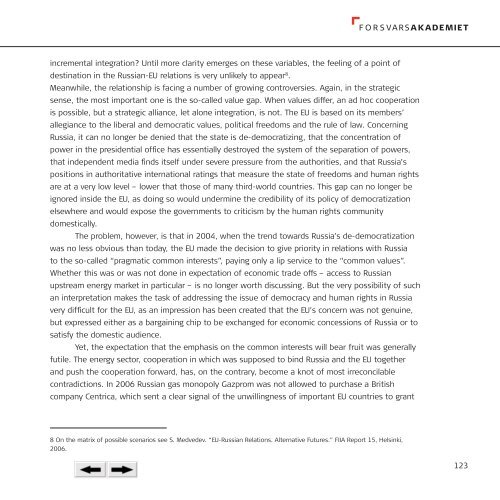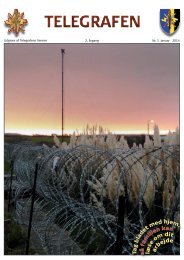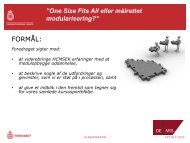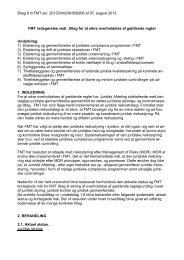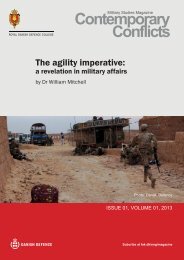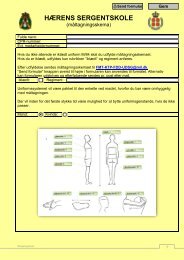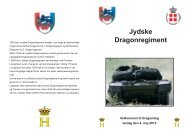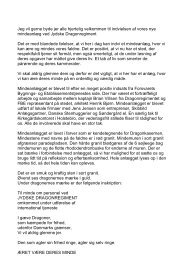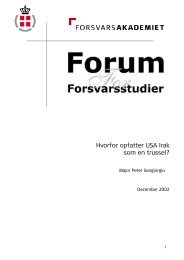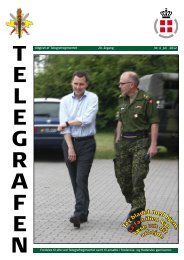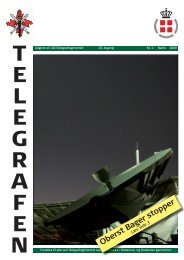Download PDF udgave
Download PDF udgave
Download PDF udgave
Create successful ePaper yourself
Turn your PDF publications into a flip-book with our unique Google optimized e-Paper software.
incremental integration? Until more clarity emerges on these variables, the feeling of a point of<br />
destination in the Russian-EU relations is very unlikely to appear8 .<br />
Meanwhile, the relationship is facing a number of growing controversies. Again, in the strategic<br />
sense, the most important one is the so-called value gap. When values differ, an ad hoc cooperation<br />
is possible, but a strategic alliance, let alone integration, is not. The EU is based on its members’<br />
allegiance to the liberal and democratic values, political freedoms and the rule of law. Concerning<br />
Russia, it can no longer be denied that the state is de-democratizing, that the concentration of<br />
power in the presidential offi ce has essentially destroyed the system of the separation of powers,<br />
that independent media fi nds itself under severe pressure from the authorities, and that Russia’s<br />
positions in authoritative international ratings that measure the state of freedoms and human rights<br />
are at a very low level – lower that those of many third-world countries. This gap can no longer be<br />
ignored inside the EU, as doing so would undermine the credibility of its policy of democratization<br />
elsewhere and would expose the governments to criticism by the human rights community<br />
domestically.<br />
The problem, however, is that in 2004, when the trend towards Russia’s de-democratization<br />
was no less obvious than today, the EU made the decision to give priority in relations with Russia<br />
to the so-called “pragmatic common interests”, paying only a lip service to the “common values”.<br />
Whether this was or was not done in expectation of economic trade offs – access to Russian<br />
upstream energy market in particular – is no longer worth discussing. But the very possibility of such<br />
an interpretation makes the task of addressing the issue of democracy and human rights in Russia<br />
very diffi cult for the EU, as an impression has been created that the EU’s concern was not genuine,<br />
but expressed either as a bargaining chip to be exchanged for economic concessions of Russia or to<br />
satisfy the domestic audience.<br />
Yet, the expectation that the emphasis on the common interests will bear fruit was generally<br />
futile. The energy sector, cooperation in which was supposed to bind Russia and the EU together<br />
and push the cooperation forward, has, on the contrary, become a knot of most irreconcilable<br />
contradictions. In 2006 Russian gas monopoly Gazprom was not allowed to purchase a British<br />
company Centrica, which sent a clear signal of the unwillingness of important EU countries to grant<br />
8 On the matrix of possible scenarios see S. Medvedev. “EU-Russian Relations. Alternative Futures.” FIIA Report 15, Helsinki,<br />
2006.<br />
123


